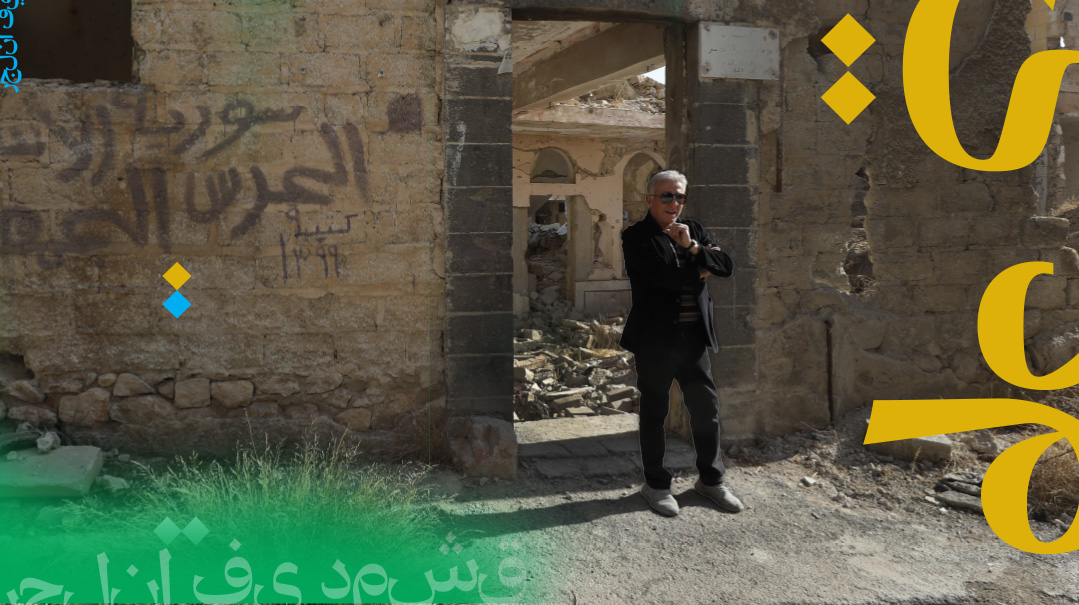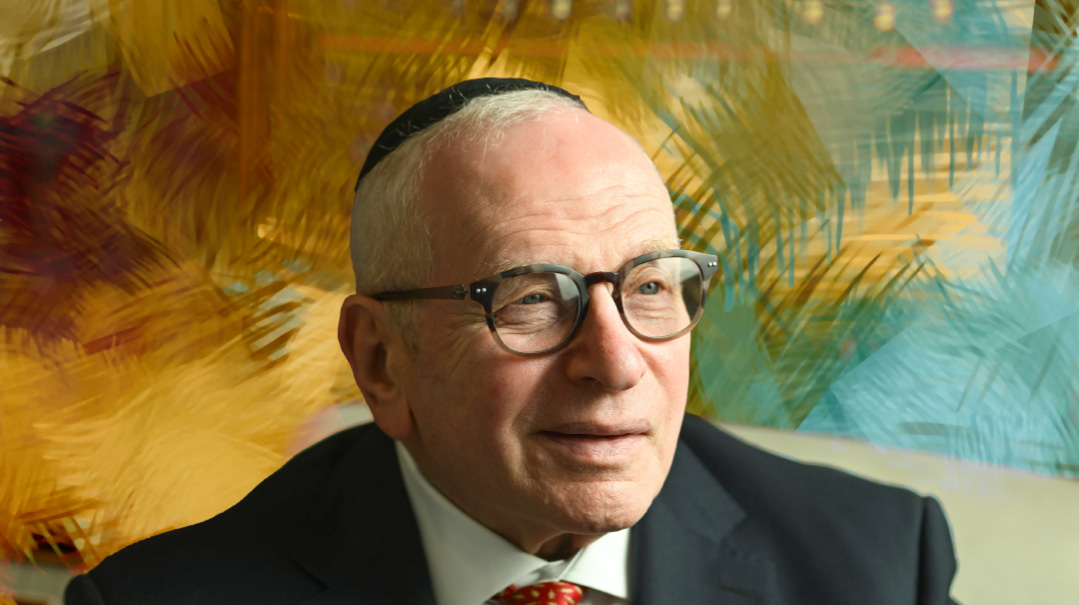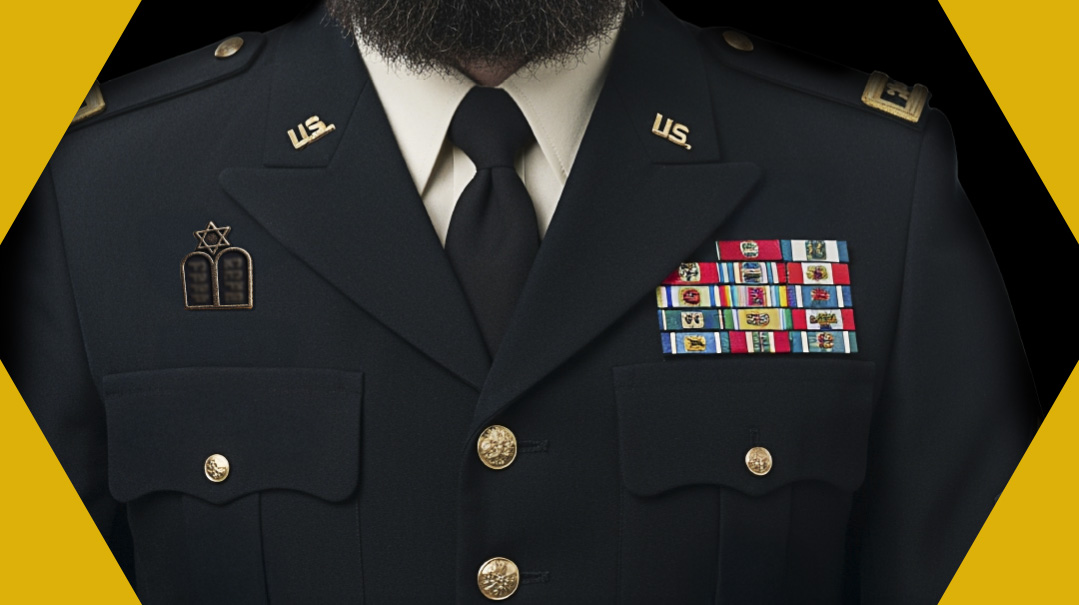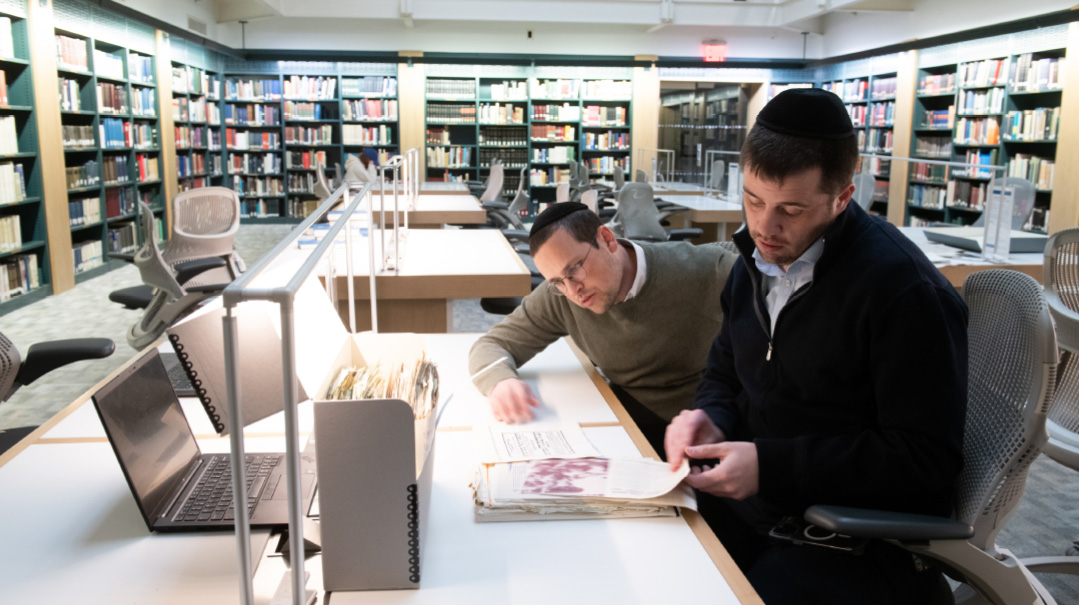Balance & Harmony


GATHERING DIAMONDS As our interview comes to a close I feel like I have stepped into those meshalim of the poor man in the king’s storehouse. I want to fill my pockets before the door closes. I want her clarity to guide me
T he walk along the cracked concrete path on Rechov Elkanah is a clear indication that royalty doesn’t always scream wealth power and prestige. Often it doesn’t scream at all. Sometimes it barely whispers.
Inside the furnishings are simple but neat. We sit at the large dining room table surrounded by shelves and shelves of neatly labeled seforim. On the wall is a picture that graces dining rooms around the world: Rav Shlomo Zalman Auerbach ztz”l wearing his trademark luminous smile. In this setting the portrait has added significance as Rav Shlomo Zalman is Rebbetzin Rochel Goldberg’s father. As the Rebbetzin welcomes me I notice that she shares the same smile.
Rebbetzin Goldberg is not only the daughter of Rav Shlomo Zalman Auerbach she’s also the wife of ybl”c Rav Zalman Nechemiah Goldberg a present-day gaon and leading dayan whose name carries weight in circles across the religious spectrum. Her youthfulness is almost surprising. Her eyes are soft and lively at once; her speech is light and tapers off almost as if she’s musing aloud making you wonder if there’s a period or a question mark after her statement.
Yet something makes you lean forward to catch every word. Something in her steady gaze tells you that she has answers to your questions. And something about her gentle manner makes you drop your inhibitions enough to ask.
To Care to Cry
What was it like growing up in the home of the preeminent gadol and posek of the generation? Rebbetzin Goldberg gives a little chuckle as she avers that her childhood home was very normal. “There were no ananim hovering in the air. My father learned; I thought it was just what everyone did.” She shrugs. “At the Shabbos table he would learn Mishnah Berurah every meal.
“But he would feed the little children” she adds. “He would tell stories and we would eat. And when the food was finished… the story was finished!” Her eyes twinkle. “Then we got a cup of beer.” I look up. “A little cup. There was no soda in those days just beer.”
The Rebbetzin grew up in Shaarei Chesed at a time when poverty was the norm. The Auerbachs were no exception but were blessed with an item of rare luxury: a refrigerator sent by their grandfather who lived in America. “The whole neighborhood put their food into our fridge. My mother would often take our food out and make room for others saying ‘Ours is already cold. It doesn’t need the fridge anymore.’”
“What did you play with?” I ask.

I suspect from the lilt in her words that this might be her life’s credo. “We didn’t come to the world to rejoice excessively nor to rejoice too little. We’re not meant to create chumrahs nor to negate them. We’re meant to live by the Shulchan Aruch”
“Oh jump rope kugelach… We’d tie a string around a towel and it became a doll. No books though. The library had books; a lot of secular books translated into Hebrew. I once borrowed one from a friend. Abba saw it and said ‘Return it to your friend.’ ”
Everything in the house revolved around her father’s learning but there was little preaching. “I don’t remember my father speaking about learning — but he did speak about middos tovos.”
Rav Shlomo Zalman’s empathy has become a legend that extends through the generations. His family tell of one story that occurred late one night. A chassan and kallah appeared at the door distraught. Their wedding was a week away they told the rav. They were both baalei teshuvah and had just been informed that due to issues in the kallah’s family background their marriage would be halachically forbidden.
“What shall we do?” they implored.
Rav Shlomo Zalman lifted his hands to the Heavens. “You’re asking me what to do but there’s nothing to be done. Can I give a heter for someone forbidden to marry?” He was silent for a moment and then he spoke again. “There’s something I can do. I can cry for you.” Rav Shlomo Zalman looked at the couple put his head in his hands and began to weep.
The next evening the couple arrived again at the house of the Rav. An old family friend of the kallah had just arrived from Argentina they told him. This friend testified that the information the couple had been given was false. The wedding could take place.
Rebbetzin Goldberg smiles. “This wasn’t a mofes from my father. It’s just a story that shows how much he cared.” (Excerpted from Family First Issue 537)
Oops! We could not locate your form.







